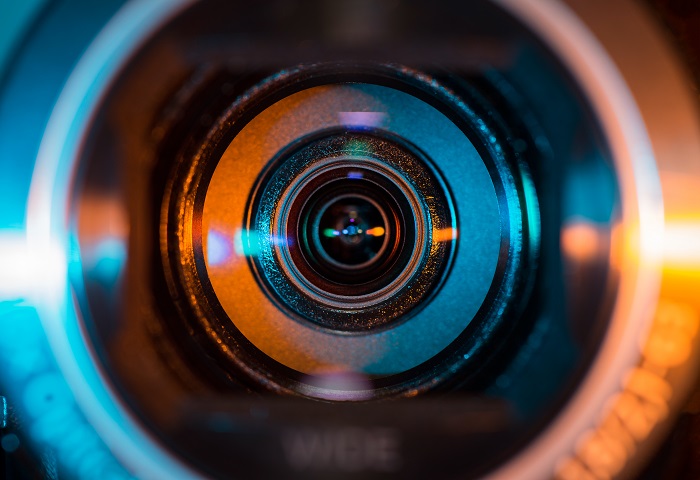Michigan surveillance has become a subject of some debate as citizens grapple with the consequences of the rise in the use of surveillance and surveillance technology across the board. While a variety of types of surveillance are used to help maintain public safety, they also raise concerns about privacy and violations of individual’s civil liberties. This article delves into the intricacies of Michigan surveillance laws, examining how they strike a balance between effective law enforcement and protecting individual rights.

I. The Legal Framework for Surveillance in Michigan
Michigan has a fairly comprehensive legal framework that governs surveillance activities, both as conducted by law enforcement agencies and private parties. The key laws that regulate surveillance in the state include:
Michigan Fourth Amendment: The Fourth Amendment of the U.S. Constitution protects individuals from unreasonable searches and seizures by requiring law enforcement to obtain warrants based on probable cause. Michigan. like all states adheres to this constitutional principle, ensuring that surveillance activities comply with the Fourth Amendment.
Michigan Penal Code: The Michigan Penal Code contains several provisions pertaining to surveillance. Section 750.539d focuses on the interception, disclosure, or use of wire, oral, or electronic communications. It prohibits unauthorized interception or disclosure of private conversations, with exceptions for lawful activities, such as consented monitoring or authorized law enforcement wiretaps.
Michigan’s Video Surveillance Act: Michigan’s Video Surveillance Act (Public Act 436 of 2000) regulates the use of video surveillance cameras by private entities, such as businesses and homeowners. It outlines the requirements for conspicuous notice, consent, and the permissible use of video footage.
II. Law Enforcement Surveillance in Michigan
Law enforcement agencies in Michigan employ various surveillance techniques to investigate and prevent criminal activities. The state, through legislation and court cases has a patchwork of guidelines and legal procedures for different types of surveillance, including:
Wiretaps and Electronic Surveillance: Michigan law permits law enforcement to conduct wiretaps and electronic surveillance, but only after obtaining a court-issued warrant. The authorities must demonstrate probable cause and satisfy strict procedural requirements outlined in the Michigan Penal Code (MCL 750.539a-750.539l).
Video Surveillance by Law Enforcement: Police departments in Michigan utilize video surveillance cameras in public areas, such as streets, parks, and government buildings, where and whenever they deem it necessary. However, video surveillance must adhere to constitutional standards and respect the reasonable expectation of privacy. Clear policies and guidelines exist to prevent the indiscriminate use of surveillance technology.

III. Private Surveillance in Michigan
While government surveillance is subject to legal oversight, private surveillance by individuals and businesses also plays a significant role in Michigan. Key aspects of surveillance conducted by private parties, including individuals and other legal entities, in the state include:
Workplace Surveillance: Employers in Michigan do have the right to monitor their customers and employees’ activities within the workplace, as long as it does not cross over into what is known as a violation of their “reasonable expectation of privacy”. Common workplace surveillance methods include video cameras, computer monitoring, and email surveillance. Employers must inform employees about any surveillance practices to maintain transparency.
Home Security Cameras: Michigan residents can install security cameras, both visible and hidden in and around their homes for protection against burglary and trespassing. However, they must respect the privacy of neighbors and passersby. The Video Surveillance Act mandates that homeowners provide conspicuous notice when using surveillance cameras that may capture activities beyond their private property.
IV. Emerging Surveillance Technologies
Advancements in technology have introduced new surveillance tools that can raise complex legal and ethical questions. Some emerging surveillance technologies include:
Facial Recognition: Facial recognition technology allows sophisticated software applications to review video and aid in the identification of specific individuals based on their facial features. While, as of this writing, Michigan does not have specific laws governing facial recognition, concerns are now being raised about potential misuse and violation of privacy rights. A comprehensive legal framework for facial recognition is being debated in the state.
Drones: Unmanned aerial vehicles, commonly known as drones, have become increasingly popular for surveillance purposes. Michigan law restricts the use of drones for surveillance by law enforcement without a warrant, except in emergency situations or with specific exceptions outlined in MCL 324.40111.

V. Private Investigator Surveillance in Michigan
Private investigators (PIs) play a significant role in conducting surveillance on behalf of clients in Michigan. These professionals are hired to gather information, uncover facts, and provide evidence in various legal, corporate, or personal matters. Michigan law regulates the activities of private investigators, ensuring their surveillance practices remain within legal boundaries.
Regulation of Private Investigators: The licensing and regulation of private investigators in Michigan falls under the jurisdiction of the Michigan Department of Licensing and Regulatory Affairs (LARA). The state’s Private Detective License Act (MCL 338.830-338.851) establishes the requirements for obtaining a license as a private investigator. This includes undergoing a background check, meeting educational or experience criteria, and passing a licensing examination.
Surveillance Techniques Used by Private Investigators: Private investigators in Michigan employ a range of surveillance techniques to gather information discreetly and lawfully. These techniques may include:
- Physical Surveillance – Private investigators may conduct physical surveillance, which involves discreetly monitoring individuals, locations, or activities. They may observe from a stationary position or follow a subject covertly to document their actions and gather evidence.
- Electronic Surveillance – Private investigators may also employ electronic surveillance methods to collect information. This essentially includes monitoring all types of phone calls, tracking digital communications like email and text messages, or using GPS tracking devices to monitor the movements of individuals or vehicles. GPS tracking is legal in Michigan under a variety of conditions, but is limited in many respects.
- Covert Camera Placement – Private investigators may strategically place hidden cameras to capture video or photographic evidence. These cameras could be concealed in everyday objects or installed in locations where surveillance is authorized or consented to by the property owner.
Legal Considerations for Private Investigator Surveillance: Private investigators in Michigan must conduct their surveillance activities in compliance with state and federal laws. While the specific laws that govern surveillance techniques used by private investigators in Michigan are not explicitly stated, they must adhere to constitutional standards and respect individuals’ privacy rights.
- Consent and Authorization – Private investigators must obtain proper consent or authorization when conducting surveillance. This can include obtaining permission from property owners to install surveillance equipment or securing lawful consent from individuals being monitored, where required.
- Avoiding Invasion of Privacy – Private investigators must exercise caution to avoid invading an individual’s reasonable expectation of privacy. Surveillance should be limited to public spaces or areas where privacy is not reasonably expected, ensuring that individuals are not subject to unwarranted intrusion.
- Admissible Evidence – Private investigators must gather evidence legally and ethically to ensure its admissibility in court proceedings. They must follow proper procedures to maintain the integrity and credibility of the evidence collected during surveillance activities.
Michigan’s surveillance laws strike a delicate balance between enabling effective law enforcement and safeguarding individual privacy rights. The state’s legal framework works to ensure that surveillance activities, whether conducted by law enforcement or private entities, adheres to the constitutional and Federal and Michigan law. As surveillance technology continues to develop, ongoing discussions and revisions to Michigan’s laws seem likely.
Private investigator surveillance in Michigan operates within the framework of state regulations and legal principles. Private investigators play a crucial role in assisting clients with gathering evidence and uncovering information through various surveillance techniques. By adhering to Michigan’s licensing requirements, respecting privacy rights, and conducting surveillance lawfully, private investigators contribute to the overall integrity and effectiveness of the legal system in the state.
If you are in need of Michigan surveillance conducted by licensed Michigan private investigators, or have any questions regarding surveillance, give ASG Investigations a call today!


